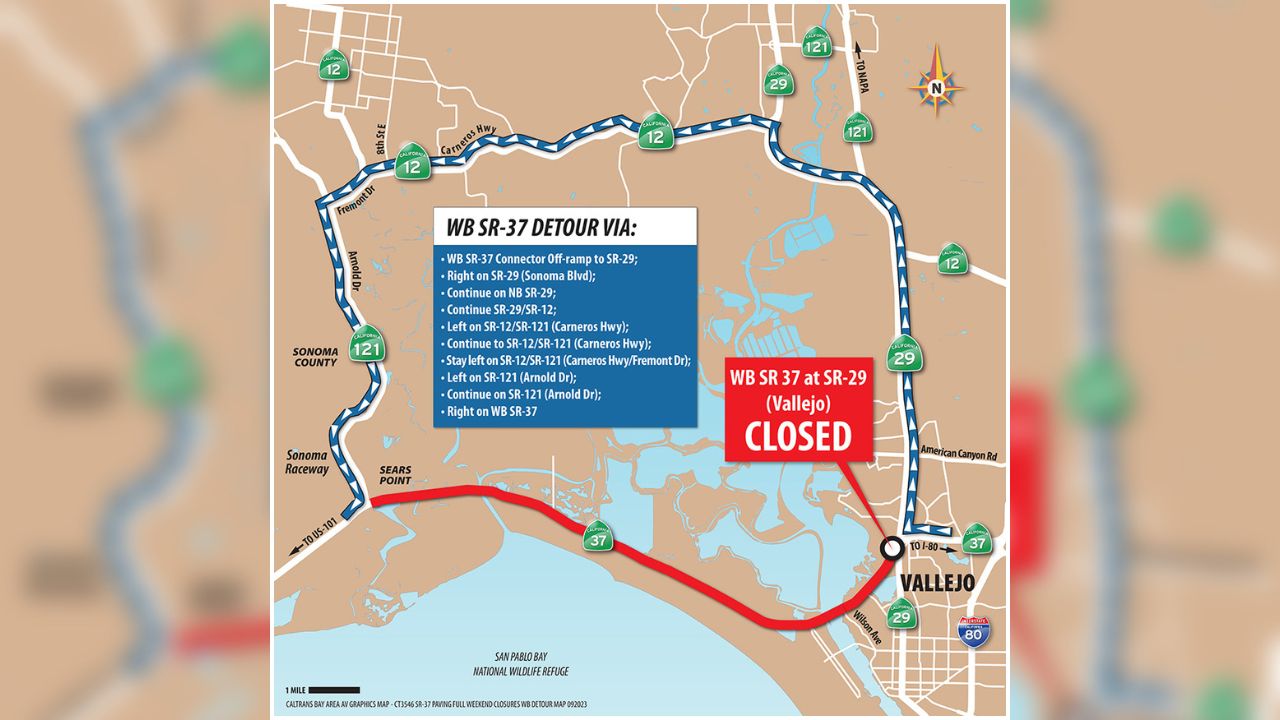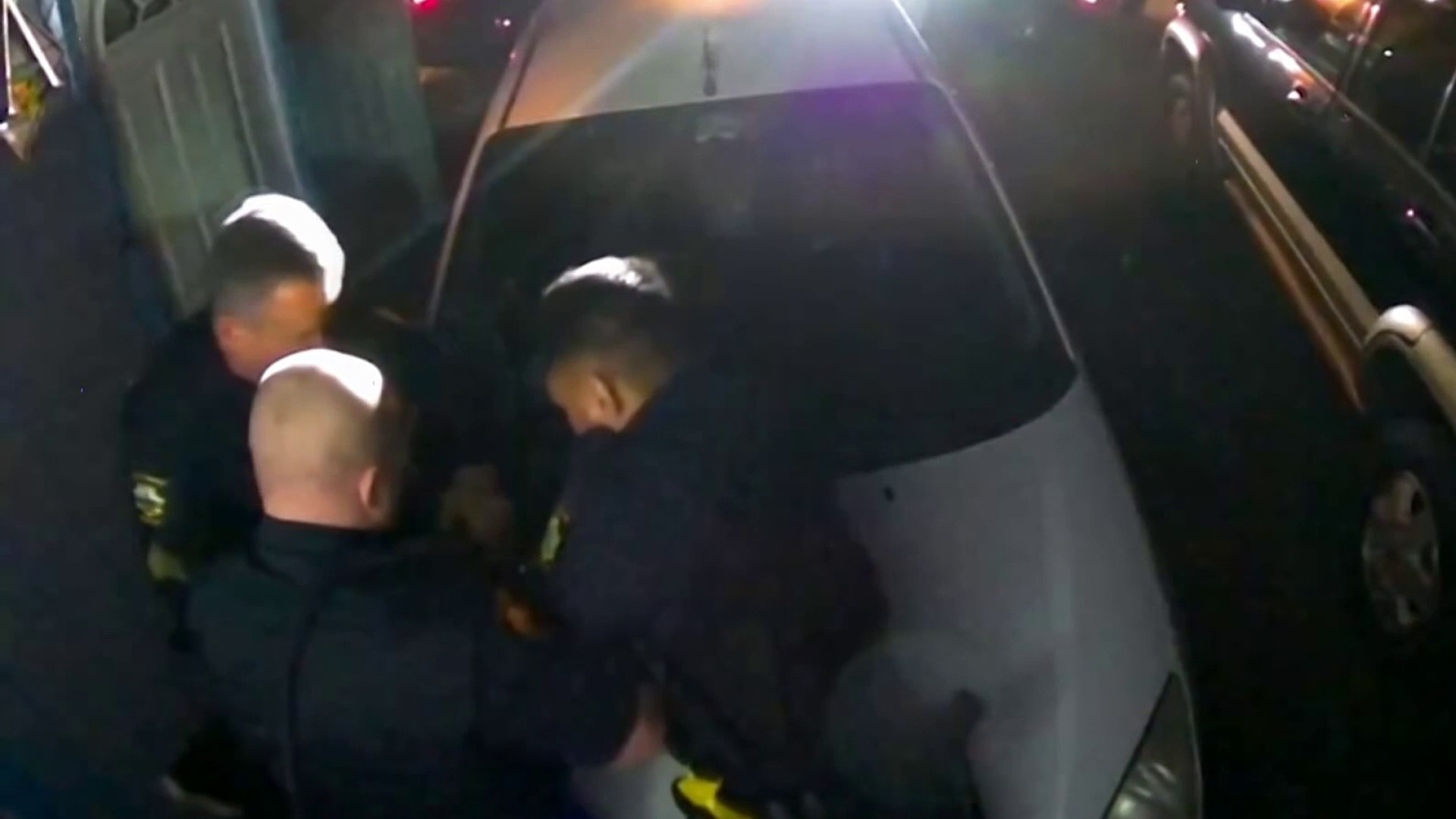Terminally ill plaintiffs, who were supposed to be guaranteed expedited trials in light of their deteriorating medical conditions, are still waiting for their day in court, according to an NBC Bay Area investigation.
Those who are dying are supposed to be granted preferential treatment when it comes to scheduling their trials. That's the law in California, but COVID-related closures have crippled state courts. The pandemic has resulted in a backlog of cases and has left some courts unable to assemble the juries needed to conduct trials.
In the wake of an NBC Bay Area investigation, lawmakers are now calling on each of California’s 58 superior courts to disclose whether they have violated state law by failing to grant priority to those plaintiffs who are dying.
Living for Justice and Dying of Cancer
In January, Alfonso Rocciola began his race against the clock. Diagnosed with mesothelioma, a painful and always fatal cancer that was crushing his lungs, his last wish was to leave behind enough money to take care of his family.

“The first visit to the doctor, he told me that if you don't do anything, you're going [to live] between three months to 18 months," said Rocciola, 82, who was still working as a senior superintendent at construction sites. For nearly five decades, he worked on a slew of iconic buildings, including the Cliff House, Exploratorium, and a scale replica of the legendary Portiuncula Chapel in Assisi, Italy.

“He's been in construction all these years, and then to have this show up after decades is just a shock,” said Marissa, Alfonso’s wife of 58 years. “ I don't want to think about him not being here,” she said, “I want to enjoy every day that I have with him and...hopefully tomorrow we have another one.”
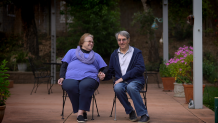
According to the Mayo Clinic, the main risk factor for mesothelioma is exposure to asbestos, used for decades in construction materials like insulation, sheetrock, and paint.
Local
It is like a boa constrictor that strangles you with each breath.
Dr. Raja Flores, Chair of Dept. of Thoracic Surgery at Mount Sinai Medical Center in New York
“It prevents you from breathing,” said Dr. Raja Flores, who has treated Mesothelioma patients for 25 years and currently chairs the Thoracic Surgery Department at Mount Sinai Medical Center in New York. “It is like a boa constrictor that strangles you with each breath...until the tumor basically suffocates you.”
I can cope with the pain. I cannot cope in my mind when I think of what I'm going to miss.
Alfonso Rocciola, diagnosed with Mesothelioma
“When I sneeze, it just is a tremendous shock that I get on my lungs,” said Alfonso.
He and his wife had recently moved to Novato to be closer to their three children and five grandchildren.
“I can cope with the pain,” he said. “I cannot cope in my mind when I think of what I'm going to miss.”
Alfonso filed a lawsuit against the companies that made and distributed the asbestos used at his construction sites, alleging they “opted to manufacture and distribute said asbestos products without attempting to protect users from, or warn users of the high risk of injury or death resulting from exposure to asbestos.” In court documents, the companies said their products met “safety expectations” and that ”they complied with “existing state of the art in the industry.”
The largest legal payout Alfonso could expect from a court trial would likely come from “pain and suffering” damages, which can often total millions of dollars. In most of the country, that money goes to the family if a plaintiff passes away before the end of the trial. However, in 11 states -- including California -- once the plaintiff dies, the pain and suffering claim dies, too, according to an analysis by LegalResearch.com. As a result, families would no longer be eligible to collect any monetary award related to pain and suffering.
I want to make sure that everybody's been taken care of.
Alfonso Rocciola, diagnosed with Mesothelioma
After decades of tackling major projects, Alfonso set his sights on one final goal: seeing his trial through to the end and securing a financial future for his wife and children.
“Before I'm gone, I want to make sure that everybody’s been taken care of -- that I did my job,” he said.
The Investigative Unit Surveyed 9 Bay Area Superior Courts
Health concerns and a growing backlog of cases have inhibited some courts from assembling the juries needed to move civil cases through the justice system.
The NBC Bay Area Investigative Unit surveyed superior courts across the Bay Area to determine whether juries have resumed in civil cases. According to those responses from court representatives, civil jury trials continue to be on hold in four of the Bay Area’s nine counties, including San Mateo, Marin, Napa, and Sonoma.
Following the initial release of this story, Bob Fleshman, court executive officer for the Napa Superior Court, contacted the Investigative Unit to correct his initial survey responses. He originally noted, "we haven’t restarted civil jury trials, though those are expected to begin again before the end of the year."
Fleshman, however, later explained that Napa Superior Court is currently ready and equipped to begin assembling juries for civil trials, but said the court has yet to do so during the pandemic because litigants have either been “settling or waiving jury trials."
Civil jury trials have also yet to resume in San Francisco. Spokesperson Ken Garcia said court officials are able to assemble juries but have not had a need to do so in light of litigants choosing to either settle their cases or waive their right to a jury, similar to the situation described by Napa county court officials.
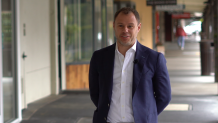
Finding a way to ensure that [the terminally ill] get their trials and have their cases heard within their lifetimes needs to be of the utmost importance for the judicial system.
Roger Gold, attorney representing Alfonso Rocciola and his family
“The rights of these people and the loss that mesothelioma victims will experience by this delay will truly be devastating," said attorney Roger Gold, who represents Alfonso. Gold specializes in mesothelioma lawsuits and was about to file Alfonso’s case in March when courts closed due to the pandemic. He wasn’t able to file the case until May.
“Finding a way to ensure that they get their trials and have their cases heard within their lifetimes needs to be of the utmost importance for the judicial system,” Gold said.
He believes the law that bans pain and suffering damages when a plaintiff dies should be changed.
“This is a loss that these individuals experience, and that's a big part of their lawsuit. That should be considered,” said Gold. “The legislature should address it and change it.”
California Lawmakers to Focus on Laws Regarding 'Pain and Suffering'
Assemblyman Mark Stone, D-Santa Cruz, is chair of the state Assembly’s Judiciary Committee, which serves as a watchdog over California’s legal system. Stone said he doubts the law can change.
“The insurance companies...their whole obligation to their shareholders is to minimize payout,” he said, adding, “that sounds kind of cold and cynical, but that's a reality of this legal structure.”
The American Property Casualty Insurance Association (APCIA), which represents nearly 60 percent of the nation’s property casualty insurance market, argues a change in the law would be “unnecessary” and burdensome.
“Pain and suffering is intended to compensate the one who actually suffered,” wrote APCIA Vice President James Whittle, who provided a written statement to the NBC Bay Area Investigative Unit. “Changing the law would lead to greater expenses for businesses...and ultimately consumers,” the statement noted.
Legal Protections for Terminally Ill Ignored During Pandemic
In California, people who are dying can petition the court for an expedited hearing within 120 days, according to California Code of Civil Procedure, section 36. To qualify for the preferential status, a person must be suffering "from an illness or condition raising substantial medical doubt of survival ... beyond six months."
The NBC Bay Area Investigative Unit, however, has confirmed that amid court closures and delays related to the pandemic, some plaintiffs never got those trials. It is unclear how many may have been denied since no one appears to be tracking these types of cases. Each of California’s 58 superior courts are overseen by what’s known as the California Judicial Council. Yet, that agency could not provide information regarding how often terminally ill plaintiffs have had their court cases delayed beyond the required 120-day timespan since the Judicial Council does not track that data.
“We should be able to know whether or not that right is truly being implemented and how it's being implemented,” said Assemblyman Stone. "We've asked the courts to implement that program, so we have absolutely every right to ask how that's going."
NBC Bay Area Investigation Spurs Reform Efforts
In the wake of the NBC Bay Area investigation, Stone is now calling for each California court to disclose to the state whether it violated the law by not prioritizing cases for the terminally ill.
The Judiciary Committee in California's Assembly has formally requested the state's Judicial Council survey each of the state's 58 superior courts to determine how often terminally plaintiffs have had their court cases delayed beyond the 120-day limit outlined in state law. A source familiar with the request said a due date for the data has not yet been set.
“If the courts are not tracking the ability of individuals to attain the rights that either the Constitution or the legislature have given them...that's kind of an administrative failure within the system.”
Assemblyman Mark Stone, D-Santa Cruz
Alfonso Waits Two Extra Months Before Getting Trial Date
“I want to make sure that my grandchildren, when I'm gone, they have some help,” Alfonso said. “I want to die in peace.”
Alfonso was ultimately assigned a court date for December. His cancer, however, advanced quickly and he died on October 19.
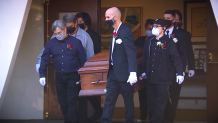
You may be gone from my sight, Dad, but you are never gone from our hearts.
Angela Bergamini, daughter of Alfonso Rocciola
“When we think of life without dad, it's hard to breathe,” said Angela Bergamini, Alfonso’s daughter, who delivered a eulogy to her father with her siblings, Viviana and Dino, at her side. “You may be gone from my sight, Dad, but you are never gone from our hearts.”
Alfonso’s death could soon lead to changes at the state capitol. In the new year, California lawmakers are expected to explore ways to better protect the legal rights of the terminally ill. The Assembly's Judiciary Committee plans to hold government hearings in 2021 to investigative the impact of the pandemic on California's judicial system, where issues relating to terminally ill plaintiffs are likely to be discussed.
“If the courts are not tracking the ability of individuals to attain the rights that either the Constitution or the legislature have given them, then to me, that's kind of an administrative failure within the system,” Stone said. “We have absolutely every right to ask how that's going and, if it's not working, ask them how they're going to then address what is a statutory obligation."
EDITOR'S NOTE (Nov. 13, 2020, 3:30 p.m. PT): This story has been updated to reflect new information regarding Napa County Superior Court's ability to assemble civil trial juries during the pandemic.

